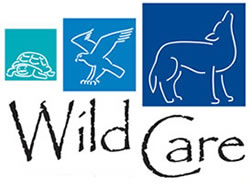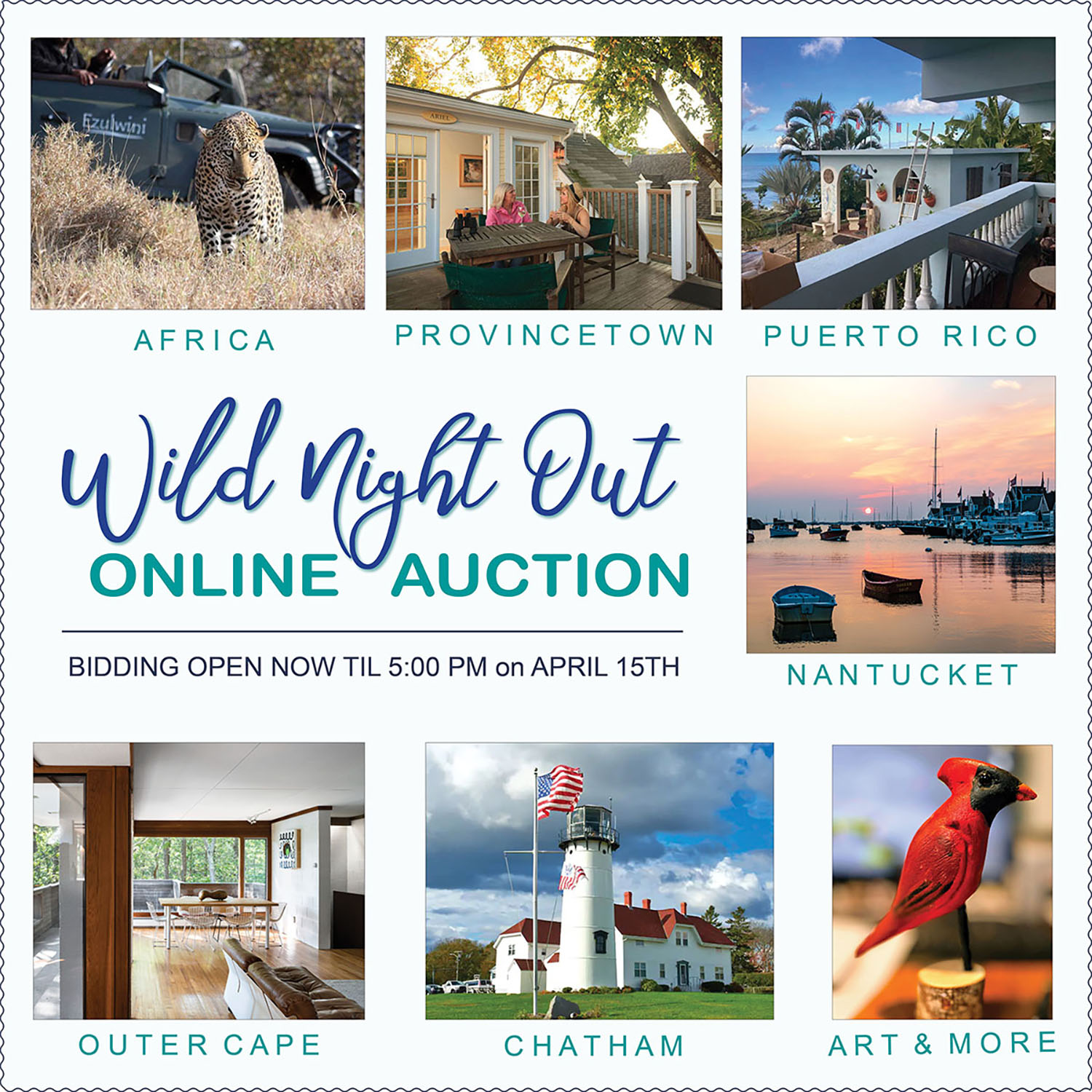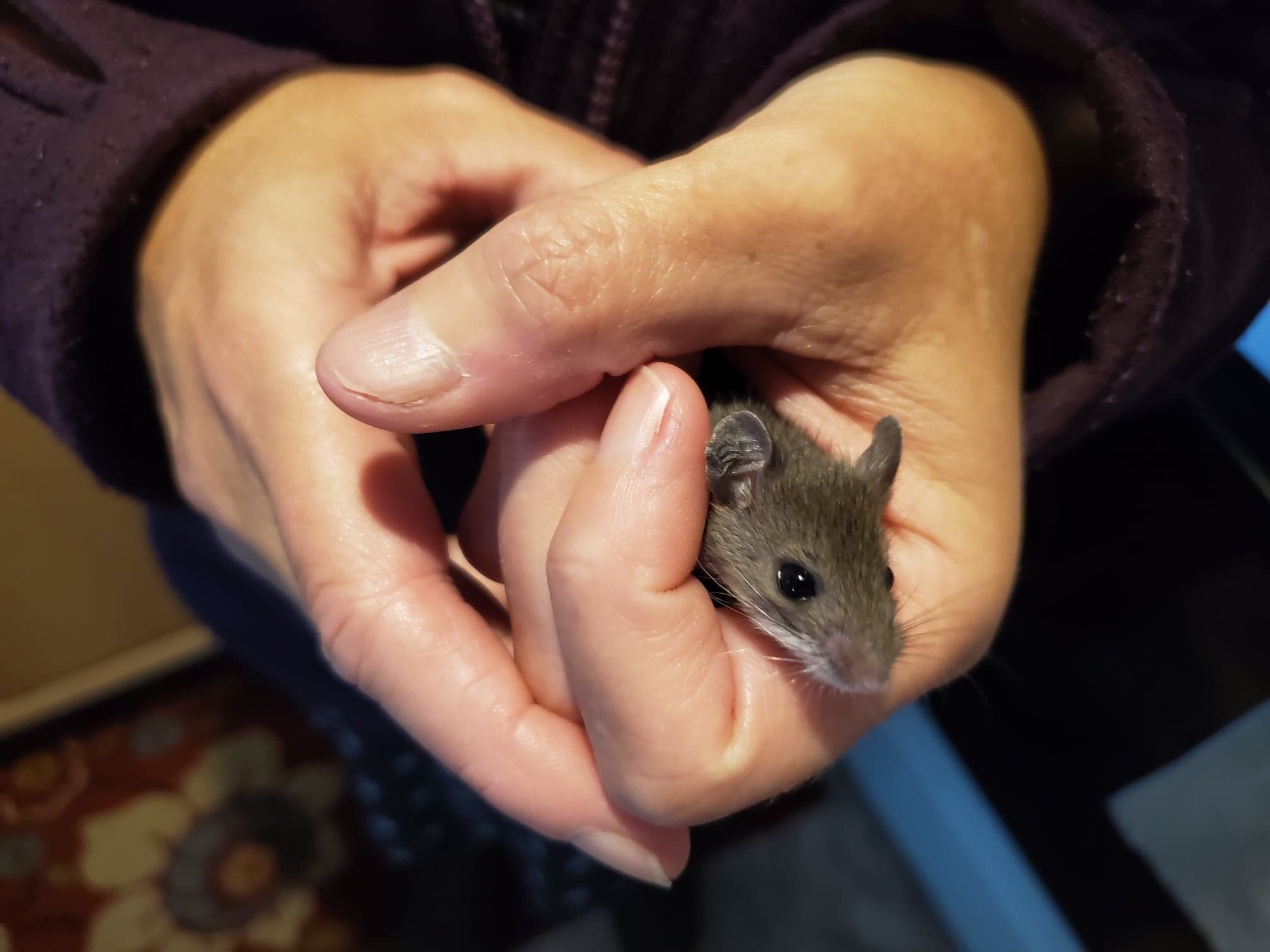
A Sneak Squeak into the Life of a Mouse Rehabilitator
by Stephanie Ellis, Wild Care Executive Director
Many of you may know that I specialize in the care of orphaned White-footed Mice, a native species in Massachusetts.
“Why on earth would you rehab mice,” you might ask?
“People actually bring mice to Wild Care?” is another question I hear frequently.
I personally have held an affinity for mice starting at an early age. Mice are prominently featured in illustrations in children’s books, greeting cards, literature, and animated films like Cinderella. They are often portrayed as whimsical and loveable creatures, living parallel lives behind our walls as we go about our daily routines. They are relatable, yet small and mysterious.
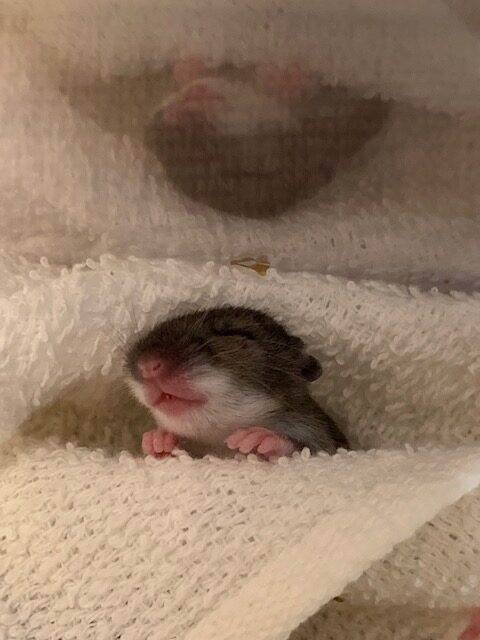
Mice being the tiny, nocturnal, and secretive creatures that they are, are found just about everywhere. Orphaned mice are brought to Wild Care for numerous reasons. A mother mouse may have succumbed to mouse traps, rodenticides, or indoor and outdoor cats, leaving babies behind. Baby mice sometimes fall out of car engine nests and are found in parking lots. Mouse nests are frequently found during spring cleaning, or in a cabinet when you are opening your cottage for the first time in early spring. If you find an active mouse nest and mom is nearby, give us a call. We will provide you with tips on how you can encourage the mother mouse to move her young. Female mice are phenomenal mothers, and more often than not will return for their young when disturbed.
I also love mice because they are the underdogs. Tiny and valuable creatures, yet despised by most. We are taught from a young age that mice are villains, dirty and scary. In fact, some people have an intense phobia of mice, labeled musophobia. Mice get a bad rap.
Whether you are fond of mice or not, they are present all around us and they are here to stay. They are also living beings. They have complex social structures and relationships to conspecifics. They are empathic. Mice are living creatures that feel pain, and have a will to live. If you’re a mouse, you have many natural and anthropogenic obstacles against you, and you are very short-lived. Mouse traps, natural predators, cats, poisons, glue traps…Where would injured and orphaned mice go, if we didn’t rehabilitate them?
There are a small handful of people who rehabilitate White-footed Mice in the state of Massachusetts. I serve on the Wildlife Rehabilitators’ Association of Massachusetts (WRAM) Board of Directors and currently sit on the WRAM Mentorship Committee. This year, I took on the role of an official “Mouse and Vole Mentor” with a goal of assisting and inspiring licensed rehabbers to rehabilitate orphaned mice. I provided assistance to many rehabbers this season who were faced with mice for the first time, or needed consultation. WRAM also operates SLACK – a resource and communication platform for MA Wildlife Rehabilitators’, of which I am the moderator for the “Small Rodent” Channel.
The Wild Care Mouse Rehab Process:
Orphaned White-footed Mice brought to Wild Care are provided warmth and hydration by Wild Care’s skilled Staff. If the pups are critical or require nursing, I am notified, and pick up the mice to bring to my home. There, they receive intensive care and are nursed every 2-4 hours for a maximum of 6-7 feedings per day – depending on age and condition, for a period up to 12 days. Once weaned onto solid foods, the mice return to Wild Care to be upgraded to a larger aquarium habitat with a “mouse box”. This is a predator-proof release box designed by Wild Care. Wild Care Staff secure a suitable release location in wooded areas away from homes. White-footed Mouse pups are with us typically 1-1.5 months prior to release.
So far this year, I have rehabilitated 66 White-footed Mouse pups in my home, and have a 74% survival rate. (I hold a MA Wildlife Rehabilitation permit.) Eyes-open orphaned mice that arrive at Wild Care, stay at Wild Care to receive care. Jennifer Taylor, our Animal Care Coordinator also takes mouse pups home, and all of our staff nurse pups as needed. The maximum number of nursing pups requiring overnight care that Jennifer and I can maintain at one time is 8. Why so few? Mice are very tiny and challenging to feed. They require a steady hand, good eyesight, consistent feeding, laser focus and PATIENCE. It typically takes 10 minutes to nurse a baby mouse. (Four mice = 40 minutes every 2-3 hours.) You must go slowly. Getting a drop of formula into a mouse’s nose or lungs can be a death sentence. It can quickly lead to pneumonia and death. Mouse care is challenging, and not for the faint of heart.
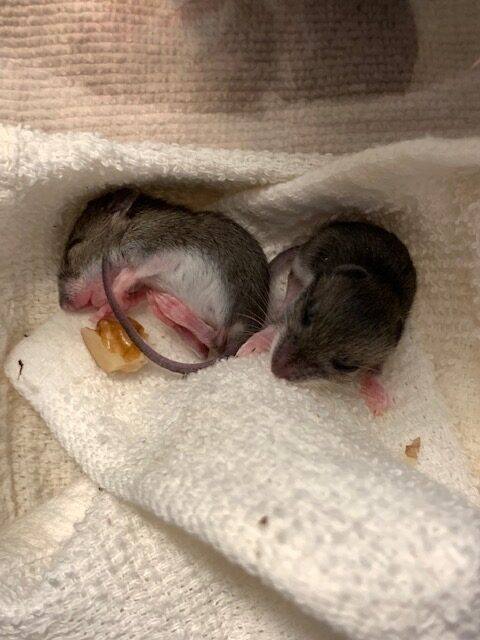
What have I learned? Mice are incredibly resilient, and mouse moms are one of the best in the natural world. White-footed Mice are an example of yet another species that suffers immense negative impacts at the hands of humans, and deserve a second chance to live.
I feel honored to be considered a “mouse specialist”. I am tremendously grateful for the MA rehabilitators this year who have added mice to their list of species they provide care for. I am grateful to my amazing Staff who provide compassionate skilled care to these creatures when they arrive at our door, and simultaneously have to deal with me when I have “mouse burnout” and need a “mouse break”.
A lot of work, right? Please consider this… This year, Wild Care has rehabilitated 141 species of wildlife. From White-footed mice, to Red-tailed Hawks, to Monarch Butterflies. While my main focus is just one tiny species, Wild Care’s animal care Staff are providing this level of care to ALL the animals that arrive at our door. Aside from the animal care, they are responding to Helpline phone calls and new patients arriving. They are coordinating rescues, and releases, and training volunteers – all while under the constraints of Avian Influenza in 2022.
The next time you see a mouse, I hope the word compassion crosses your mind.
To be compassionate is more than expressing concern or showing sympathy for another person or being. Compassion is putting aside judgement or stigma, and providing support in any way that you can. Compassion is an act that can and should be extended to all sentient beings. Even the beings that are smaller and often deemed lesser than us, for those are the ones who are often need it the most.
Stephanie
Executive Director
Wild Night Out Online Auction
READY, SET, BID… We are so excited to announce that our Wild Night Out Online Auction is now live!
READ ALL NEWS
CALENDAR OF EVENTS
04 April, 2024
Wild Night Out Online Auction
EVENT DETAILS
05 April, 2024
Wild Night Out
EVENT DETAILS
28 February, 2024
Wildlife Winter/Spring Talk Series
EVENT DETAILS

DID YOU KNOW??
Wild Care has a state-of-the-art seabird therapy pool, which allows seabirds and waterfowl to exercise on running water. This will help our bird friends recover more quickly so they can get back to their watery habitats!
